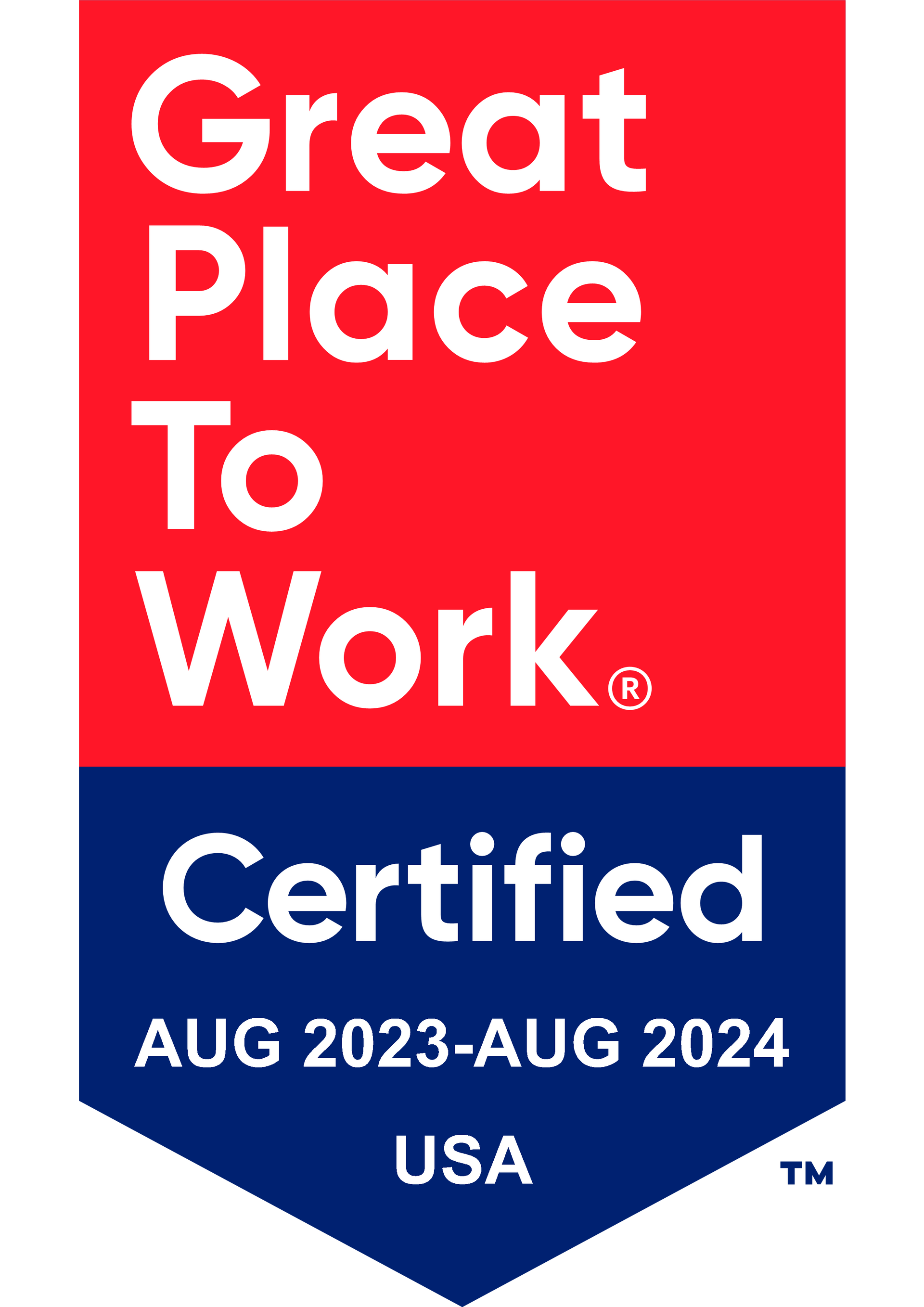Get in touch
408-366-8880
mymail@mailservice.com

Self-Funded Health Plan: When is a Good Time to Self-Fund My Plan?
The ongoing state of health insurance plans has organizational executive teams and their HR program leaders searching for new solutions. They want results that promise financial savings for everyone that also offer better healthcare value for their employees.
As a result, many business leaders are turning to trusted benefits firms to gain deeper insights and gather more ideas on how to best serve valued employees’ health insurance needs. Over time, self-funded insurance plans have grown increasingly attractive to HR and executive teams, providing new options for value and quality in a turbulent healthcare landscape.
What do you know about a self-funded health plan and all it can do to benefit your employees and your organization’s bottom line? We explore this popular alternative to traditional fully insured health plans to see if it is a good fit for your organization.
WHAT IS A SELF-FUNDED HEALTH PLAN?
In a self-funded health plan, also called a self-insured plan or employee-focused health plan, the employer accepts the financial risk associated with providing certain healthcare benefits to the organization’s employees.
Essentially, self-insured employers pay for employee health claims out of pocket as each claim is presented. Rather than paying for a projected, predetermined premium to an insurance carrier in a fully insured health plan, employers only pay upon rendering and billing of services when having a self-funded health plan.
According to the advice of a benefits firm, self-insured employers oftentimes set up a special trust fund — supported by a combination of corporate and employee contributions — to pay all incurred health claims for all covered employees.

SELF-FUNDED HEALTH PLAN: HOW DOES IT WORK?
Once an employer decides to offer self-funding employee healthcare benefits, executives and the HR team typically set up a specially designated trust fund. In a self-insured health plan fund, they place money that is fully intended to pay for incurred healthcare claims once claims are submitted by employees and received by the benefits team.
Businesses may choose to work with a team of professionals familiar with self-insured funding, which is known as a third-party administrator (TPA). TPAs assist employers in processing claims on the self-insuring company’s behalf while providing additional services, such as:
- Collecting premiums
- Providing utilization reviews of claims
- Contracting for PPO services
- Providing overall services for the selected employee benefit plan, whether self-insured or fully insured
These responsibilities, focused solely on healthcare claims, can either be subcontracted to a trusted TPA or assigned to HR benefits staffers who can take on the tasks in-house.
THE CATASTROPHIC CLAIMS QUESTION IN SELF-FUNDED PLANS
Catastrophic claims are a major concern for business leaders and HR program team members when considering self-funding their health plans. Catastrophic conditions and the uncertainties they present do not necessarily need to bar any employer from selecting a self-insured plan.
Below are a few catastrophic claims that make employers pause their consideration of adopting a self-insured approach to healthcare:
- Certain types of cancer and prolonged treatment plans
- Chronic or end-stage renal, or kidney, disease
- Congenital anomalies
- Cerebrovascular disease, related to the brain’s blood vessels
- Congestive heart failure
- Pulmonary collapse and respiratory failure
- Septicemia or infection
As is often the case, the concern over managing catastrophic claims is naturally less overwhelming for larger companies that have had the opportunity to build and save strong financial reserves for several years. Such businesses can often cover nearly any healthcare costs out of pocket with little impact.
Smaller and medium-sized businesses, on the other hand, have not had as much time to stockpile reserves to financially prepare for catastrophic claims under a self-funded plan. Fortunately, there are ways for small and midsize business employers to prepare for catastrophic claims, avoiding financial distress or, in some cases, devastation.
Smaller businesses rely on stop-loss insurance if they encounter a catastrophic event. Stop-loss insurance provides the reimbursement to employers for any claims that fall above a specific dollar amount. Data from 2010–2013 shows that there is a wide range of stop-loss deductibles in the self-funded insurance market.
The stop-loss deductible feature alone makes self-insured plans more attractive to employers without readily available funds to cover massive and unanticipated healthcare costs.
WHAT IS A FULLY INSURED PLAN?
In a fully insured health insurance plan, all costs and any associated financial risks are covered by the employer who buys the insurance contract for the employees.
A fully insured plan, just like any health plan, has its share of pros and cons.
PROS OF FULLY INSURED PLANS
- Employers face fewer cost variances from month to month and a greater sense of consistency
- HR program teams can negotiate for lower healthcare rates
- Insurance providers manage all claims
- Costs are fixed so there are no surprises to HR and executive teams
- Insurance companies assume all associated risks
CONS OF FULLY INSURED PLANS
- Premium costs can run high and are unpredictable
- HR teams and employers need to negotiate new deals with insurers each year
- Communicating coverage benefits can be difficult for employers
- Tax burdens run higher for fully insured health plans

WHY ARE EMPLOYERS INCREASINGLY SEARCHING FOR ALTERNATIVES TO REPLACE FULLY INSURED PLANS?
In August 2019, Plan Sponsor reported that there has been conflicting evidence about the benefits of self-funding. Many sources indicate that self-funding is still a good choice, especially given factors like managing increasing healthcare costs and stringent requirements associated with the Patient Protection and Affordable Care Act (ACA). Therefore, the emerging trend is looking for affordable and practical alternatives to a fully insured plan.
Self-funding is often an attractive alternative since it has a greater possibility of garnering cheaper rates on the lower end of the financial spectrum. One reason for potentially lower rates is due to the different types of fees built into premium costs. Additionally, the ACA requires more taxes and subsidies for funding, thus providing more potential savings for lower incomes.
However, Plan Sponsor reported that the availability of self-insured plans has increased, and continues to increase, among larger establishments while falling among smaller establishments. With these two occurrences, medium-sized establishments may experience stabilization to allow for self-funded plans. This development could help stabilize self-funding across the board in the long run, making it attractive and increasingly possible and profitable for businesses of all sizes.
WHAT ARE THE BENEFITS OF A SELF-FUNDED HEALTH PLAN?
There are several benefits associated with choosing to offer self-funded plans. Below are the most common benefits.
CUSTOMIZATION
The employer has the option and capability to customize a self-funded plan to meet the specific healthcare needs of its employees. Some teams may be generally healthy and have fewer known healthcare needs, making it possible to invest more money at the outset, for example. Self-funding allows employers to be more selective, as opposed to purchasing a one-size-fits-all insurance policy.
MONITORING CAPABILITES
The employer and financial team can monitor and maintain greater control over the health plan funds, allowing for maximization of interest income. This income might otherwise be paid to the insurance carrier through investment premium dollars. In the case of self-funding, the premium dollars stay with the business.
NO ADVANCED PAYMENTS FOR COVERAGE
The employer does not have to pay for coverage in advance, allowing the business to retain the funds for improved cash flow and possible earned interest while keeping that money in savings.
FEWER COMPLIANCE REGULATIONS
The employer does not need to comply with conflicting state health insurance benefits mandates or other random regulatory requirements. Self-funded plans are regulated directly under one federal law, which is the Employee Retirement Income Security Act of 1974 (ERISA). ERISA sets minimum standards for most voluntarily established retirement and health plans in private industry, providing protection for individuals investing in these plans.
NO HEALTH INSURANCE PREMIUM TAXES
The employer does not need to pay state health insurance premium taxes, which often spike to 2% to 3% of the premium’s actual dollar value.
FREEDOM TO CONTRACT PROVIDERS AND NETWORKS
The employer can search for and contract providers, or provider networks, best suited to meet the healthcare needs of its employees, as well as the company’s budget when possible.

WHAT TYPES OF BUSINESSES THRIVE USING SELF-FUNDED INSURANCE PROGRAMS?
Currently, larger businesses reap the most benefits from self-funded insurance plans due to their stronger reserve of resources to deal with the risks associated with self-insuring programs.
As noted earlier, smaller, and medium-sized businesses are beginning to face the risks with greater confidence, thanks to some stability-induced funding through the ACA. Additionally, with the increasing number of smaller and medium-sized businesses are taking the plunge into self-funding, it is helping to stabilize the marketplace across the board to allow all sizes of companies to experience the benefits of self-funding for themselves.
SMALL BUSINESSES AND THE PARTIALLY SELF-FUNDED HEALTH PLAN
While more small businesses are giving self-insurance a try, it still may not be the best pairing for the following reasons.
Liability and Risk
High-impact risks, such as those associated with catastrophic claims, can cause havoc for a small business. Even with the funding to cover the loss, managing the situation can strain human resources for an up-and-coming business. Additionally, small business employers must comply with HIPAA requirements when handling medical information and data on employees, which becomes far more involved when self-insured.
The Cost Associated with “Savings”
Employers with fewer than 100 employees may become disappointed when they do not see any savings with their self-funded plan. The administrative costs often quickly eclipse the possibly anticipated savings that larger companies experience.
Complex and Steep Learning Curve
Small business owners and startup leaders usually have a lot on their plates simply managing their core tasks related to their product or service. Adding an administrative-heavy responsibility like a self-funded insurance plan will only add more stress, especially since there are many complex legal and regulatory guidelines, which can change from one state to the next. If small businesses do explore the idea of offering self-insurance, they should reach out to professionals for help in deciding how to approach and ultimately administer the plan.
Many small business owners are choosing the route that leads to the best of both worlds, combining features of self-funding and traditional insurance. This type of health insurance is known as a partially self-funded plan.
Small businesses determined to provide their employees with a self-funded plan can enjoy the compromise of a partially self-funded plan, which is provided and administered by a large traditional insurance company. The underwriters for the large company will assess all your employees by administering a census and health survey to determine the business’s options and costs.
Employers pay a monthly premium to the plan provider, which is based on the “worst-case scenario” and put into a claims fund.

WHY IS IT IMPORTANT TO SEEK ADDITIONAL PROFESSIONAL SUPPORT WHEN SELECTING SELF-FUNDED PLANS?
Self-funding insurance plans can be a promising prospect for businesses with a good strategy and reliable support in decision-making. Self-funded insurance plan adoption, implementation, and administration can be greatly streamlined through the efforts of businesses like KBI Benefits. Our services help companies of all sizes thrive with a new sense of autonomy in the healthcare marketplace.
At a minimum, these firms can help business leaders and HR teams understand the many facets of self-funding they need to consider before taking the plunge. Benefits firms help businesses gather as much information as possible to let decision-makers weigh the benefits versus the risks of moving from a fully funded plan to a self-funded one. Doing this crucial research before moving to a self-funded plan has the potential to offer business leaders greater control over healthcare costs, allowing for the design and control of a truly original plan that best fits employees and the organization’s budget as well as goals for the future.
IS NOW A GOOD TIME FOR A SELF-FUNDED HEALTH INSURANCE PLAN?
Are you considering making a big change in your benefits department? Do you want to reduce costs and control the way you spend your organization’s healthcare dollars while still offering premier healthcare services to your valued employees? These are all important questions for business leaders with an eye to the future, in terms of healthcare, the specific costs involved, and protecting the organization’s profits in the short term and the longer term.
Our team at KBI Benefits can help you learn the ins and outs of adopting and implementing a self-funded plan. If you decide you want to take the leap and institute a self-funded plan, we can help design and administer your self-insurance plan to get you started. We can also help on an ongoing basis based on your needs.
To learn more about self-funded plans and how one might fit in your own health insurance strategy, contact us today by submitting our online contact form or calling us at 408.366.8880. We look forward to working with you!
Services
Latest Thinking




